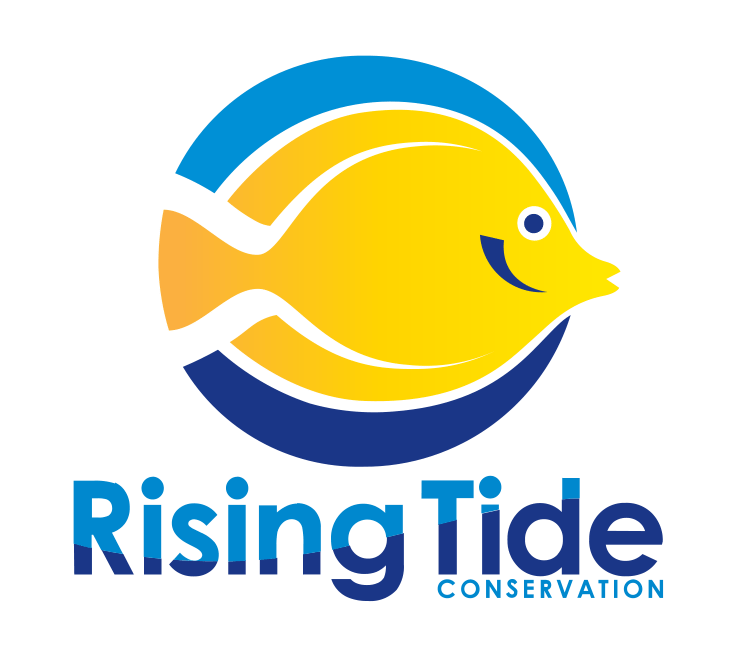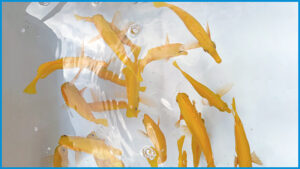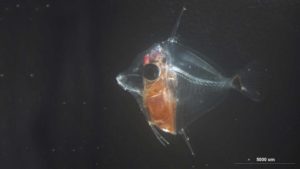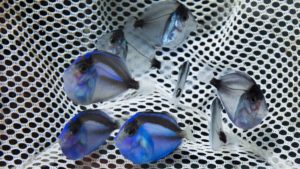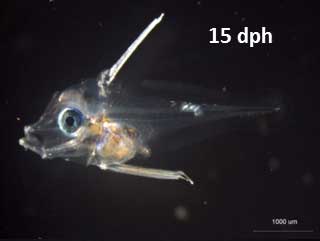
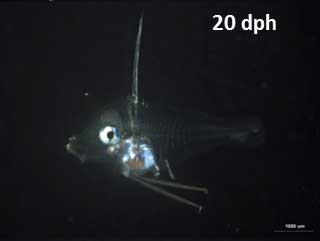
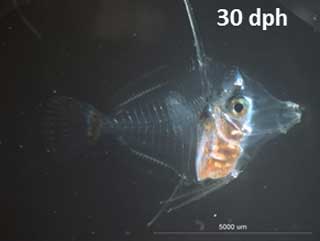
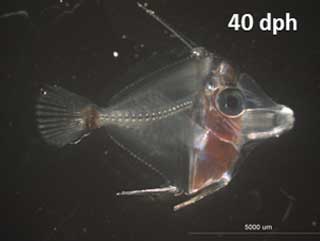
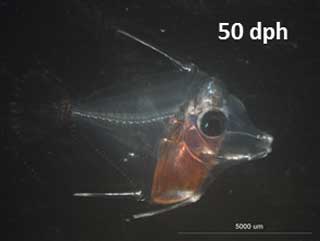
Research on culturing yellow tangs began at the Oceanic Institute (OI) back in 2001 around the same time as initial, exciting breakthroughs were achieved with dwarf angelfish (by OI and others like Frank Baensch and Karen Brittain). It seemed, back then, that we were just around the corner from some major steps forward with the culture of previously thought “impossible to rear” species. Indeed, there has been incredible progress with the culture of marine ornamentals since that time. However, yellow tang has proven to be far more difficult to rear than many of the other targeted marine ornamental fish species under investigation. More than a decade later, we are finally seeing some exciting progress with rearing this species and will share updates about our work on this site.
On Jan 1, 2014, we stocked a 1000L tank with about 40,000 yellow tang eggs. In this rearing attempt, we experimented with very high water turn-over rates, and very clean (ultra UV dose) water. As in previous studies, we used the calanoid copepod, Parvocalanus crassirostris, as our feed. While this was only one tank (we are currently testing these methods again), we immediately noticed far more fish making it through the early larval period than ever before. We were really excited to see 1000’s of fish survive past the first 2-3 weeks and ended up with more than 600 at day 35. We have since moved the fish to smaller tanks and are investigating potential settlement cues, like photoperiod and substrate.The fish recently crossed day 50 and appear to be looking very close to
The fish recently crossed day 50 and appear to be looking very close to a settlement. We’re observing fairly high mortality during this period of transition, but still, have more than 150 fish distributed among our tanks. We are hoping at least a few make it through, but regardless are very encouraged by this recent progress!
With newly obtained support from Rising Tide Conservation and the Hawaii Tourism Authority, we are looking forward to pushing this culture technology forward. This work will be supported by an HPU graduate student (Emma Forbes) who will introduce herself in a separate post. Stay tuned for updates from OI and Emma!Aloha,
Aloha,
Chad Callan
